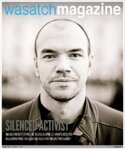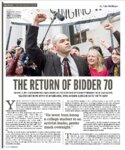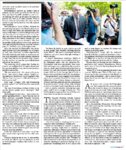University of Utah Student Newspapers--The Chronicle | 2013-03-06 | Page 4
| Type | issue |
| Date | 2013-03-06 |
| Paper | University of Utah Student Newspapers--The Chronicle |
| Language | eng |
| City | Salt Lake City |
| County | Salt Lake |
| Category | School |
| Rights | In Copyright (InC) |
| Rights Holder | University of Utah Student Media, Salt Lake City, Utah |
| Publisher | Digitized by J. Willard Marriott Library, University of Utah |
| ARK | ark:/87278/s6mfs0ft |
| Reference URL | https://newspapers.lib.utah.edu/ark:/87278/s6mfs0ft |
Page Metadata
| Type | page |
| Date | 2013-03-06 |
| Paper | University of Utah Student Newspapers--The Chronicle |
| Language | eng |
| City | Salt Lake City |
| County | Salt Lake |
| Category | School |
| Page | 4 |
| Reference URL | https://newspapers.lib.utah.edu/ark:/87278/s6mfs0ft/31032293 |




















